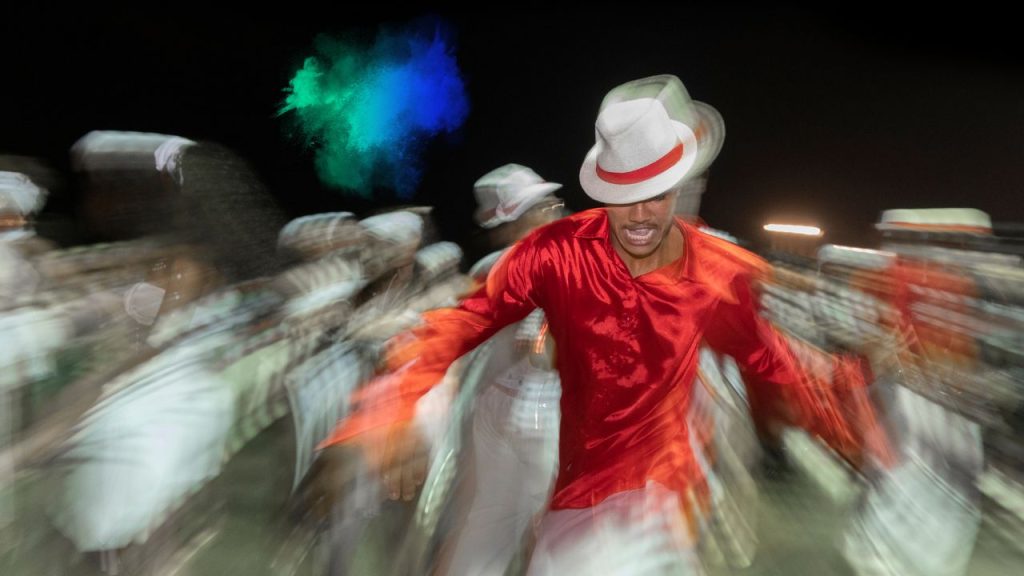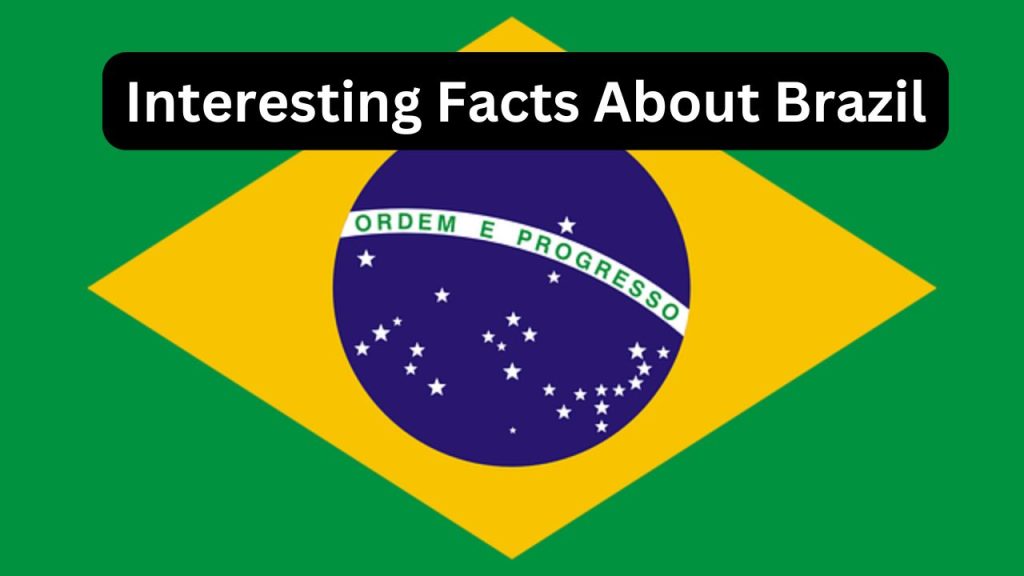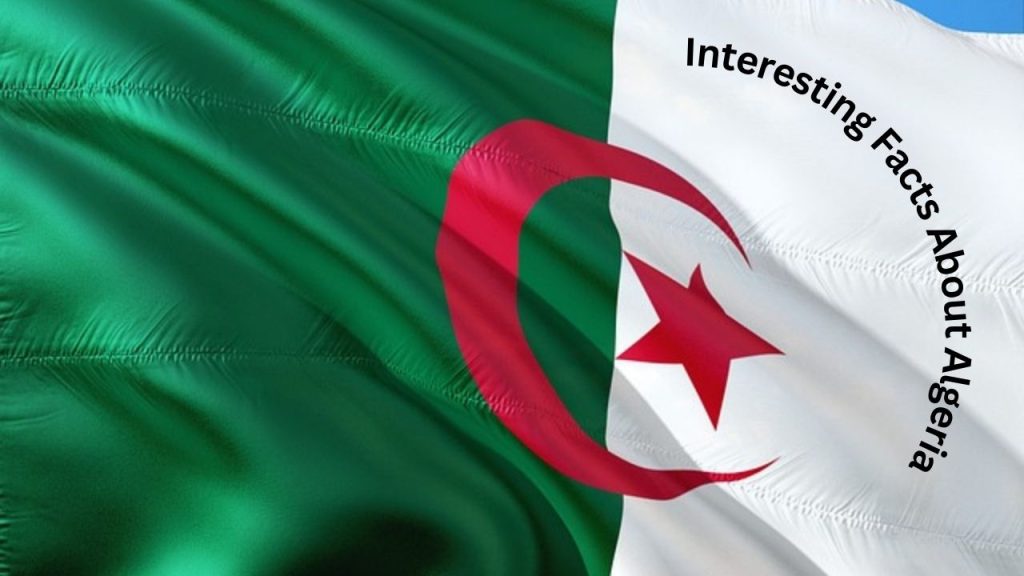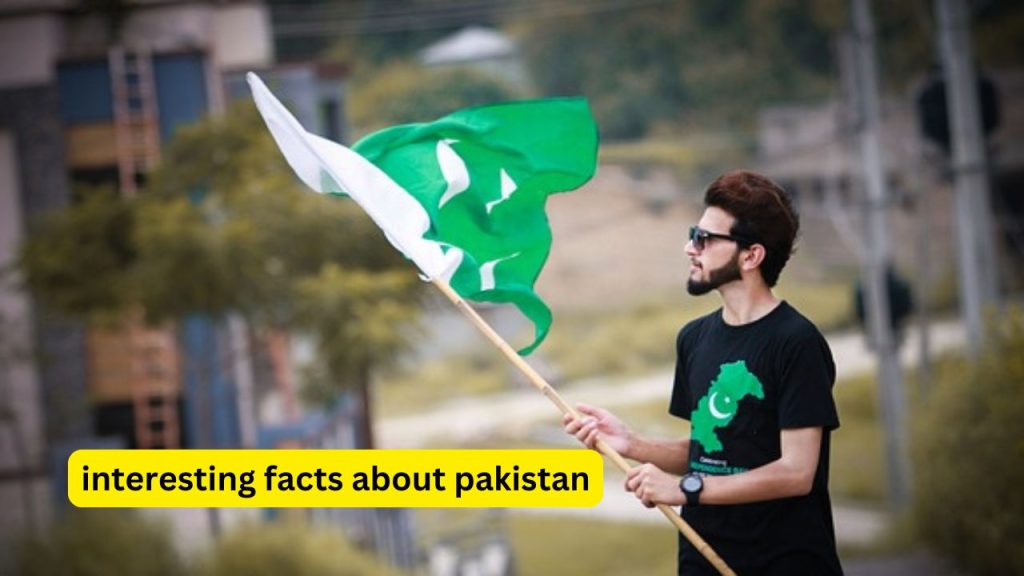Explore 50 interesting facts about Brazil, from its vibrant culture and diverse wildlife to its stunning landscapes and rich history.
South America’s largest nation, Brazil, is a place of contrasts, natural beauty, and a dynamic culture. When one thinks about Brazil, images like Carnival, samba, and renowned soccer players spring to mind. However, Brazil is a nation rich in history, wildlife, and intriguing customs, and it has a lot more to offer. We’ll go over some of the most fascinating and unusual facts about Brazil in this post.
Interesting Facts About Brazil
1. The Fifth-Largest Nation in the World is Brazil
Brazil, with a total area of 8.5 million square kilometers, is the sixth biggest country in the world by land area. The only nations that exceed it are the US, China, Russia, and Canada. Brazil’s vast size allows it to sustain a diverse range of ecosystems, cultures, and landscapes.
2. Portuguese is Brazil’s Official Language
While most of South America speaks Spanish, Brazil stands out with Portuguese as its official language. This is due to Portugal’s colonization of the country in the early 1500s. Today, Brazil is the largest Portuguese-speaking country in the world.
3. Home to the Amazon Rainforest
60% of the Amazon Rainforest, dubbed the “lungs of the Earth,” is found in Brazil. Producing 20% of the world’s oxygen, this vast forest covers an area of nearly 5.5 million square kilometers. Along with being home to several undiscovered species, it is also a hotspot for biodiversity.
4. Amazon River: The Lifeline of Brazil

Brazil is home to the second-longest river in the world, the Amazon. The river is more than 7,000 kilometers long, and in the wet season, it may widen to more than 24 miles in certain places! Both human life and the environment of the area depend heavily on the river.
5. Carnival: The World’s Largest Party
Brazil’s Carnival is world-famous. Every year, millions of people gather in cities like Rio de Janeiro and Salvador to enjoy days of music, dance, and colorful costumes. Samba schools compete to put on the best parades, and the energy of the event is unmatched.
6. Brazil is the World’s Largest Coffee Producer
If you’re a coffee lover, you’ve likely tasted coffee beans that originated in Brazil. The country has been the world’s largest coffee producer for over 150 years. Its coffee industry is so vast that Brazil alone accounts for about a third of global coffee production.
7. Soccer is a National Obsession
Brazilians are known for their love of soccer (or football, as it’s called there). The country has won the FIFA World Cup five times, more than any other nation. Legendary players like Pelé, Zico, and Neymar have helped shape Brazil’s international reputation as a soccer powerhouse.
8. Pelé: The Soccer King
Speaking about soccer, Pelé is one of Brazil’s most adored athletes. One of the all-time greats in soccer, Pelé led Brazil to three World Cup championships and amassed over 1,000 goals in his career. His impact on the game is still felt on a worldwide scale.
9. Home to the Biggest Wetland in the World

Approximately 80% of the Pantanal, the biggest tropical wetland in the world, is found in Brazil. There are numerous bird species, capybaras, jaguars, caimans, and other animals in this very diverse environment.
10. The Cultural Melting Pot That Is Brazil
With a rich fusion of indigenous, African, European, and Asian traditions, Brazil is one of the most ethnically diverse nations on earth. This diversity is reflected in the country’s food, music, and traditions.
11. Capoeira: Brazil’s Martial Art
Capoeira is a Brazilian martial art that combines elements of dance, acrobatics, and music. It was developed by African slaves in Brazil as a way to disguise their fight training as dance, and today it’s practiced all over the world.
12. The World’s Largest Population of Catholics
Brazil has the world’s largest population of Roman Catholics, with about 123 million adherents. Catholicism plays a significant role in Brazilian culture, influencing festivals, architecture, and the arts.
13. A Megadiverse Country
As one of the world’s 17 megadiverse nations, Brazil is home to the vast majority of all species on Earth. More than 43,000 plant species and more than 103,000 animal species call it home, many of which are unique to Brazil.
14. The Well-Known Christ the Redeemer Monument
Known for its majestic view of Rio de Janeiro, the Christ the Redeemer monument is one of the New Seven Wonders of the World. With its arms extended, standing at a height of thirty meters, it represents welcome and peace.
15. Brazil Has 4 Time Zones
Due to its massive size, Brazil spans four different time zones. This can sometimes create confusion, especially during national events, but it’s a reflection of the country’s vastness.
16. A Diverse Climate
Brazil’s climate varies greatly depending on where you are. While much of the country enjoys a tropical climate, the southern regions experience more temperate weather. The Amazon region, of course, is hot and humid all year round.
17. Brasília: A Planned City
Brazil’s capital, Brasília, is a unique, planned city that was inaugurated in 1960. Designed by famous architect Oscar Niemeyer, the city’s futuristic design is meant to resemble an airplane when viewed from above.
18. Home to Iguazu Falls
Iguazu Falls, one of the largest and most stunning waterfalls in the world, is located on the border between Brazil and Argentina. The falls consist of 275 individual drops, creating a breathtaking natural spectacle.
19. Bossa Nova: Brazil’s Iconic Music Style
Bossa Nova, a unique style of Brazilian music that combines samba and jazz, emerged in the 1950s and 60s. Artists like João Gilberto and Antônio Carlos Jobim popularized this smooth, relaxing music style that has since gained international acclaim.
20. Samba:

Samba is more than just music in Brazil—it’s a way of life. Originating from African rhythms, samba is closely associated with the Brazilian Carnival and has become a symbol of the country’s national identity.
21. Feijoada: Brazil’s National Dish
Traditionally eaten with rice, collard greens, and orange slices, feijoada is a filling stew prepared with black beans and various pig pieces. It’s a national favorite that’s usually consumed at sizable family get-togethers.
22. The Legend of the Amazon River Dolphins
In Brazilian folklore, the Amazon River dolphin, or “boto,” is believed to have the ability to transform into a handsome man who seduces women before returning to the river. This legend adds a mystical element to the already mysterious Amazon region.
23. Brazil’s Atlantic Forest: A Threatened Ecosystem
While the Amazon gets most of the attention, Brazil’s Atlantic Forest is another important but highly threatened ecosystem. Once spanning over a million square kilometers, only about 12% of it remains due to deforestation.
24. São Paulo: The Largest City in the Southern Hemisphere
São Paulo is Brazil’s largest city and one of the largest in the world, with over 12 million residents. It’s a bustling metropolis known for its skyscrapers, cultural diversity, and vibrant business scene.
25. World’s Largest Producer of Oranges

Brazil produces about a third of the world’s oranges, with most of the juice ending up in glasses across the globe. The country’s climate and fertile soil make it an ideal location for citrus farming.
26. Rich in Natural Resources
Brazil is one of the richest countries in terms of natural resources. It’s a major exporter of iron ore, soybeans, sugar, and oil. This wealth of resources has helped boost Brazil’s economy, though it also faces environmental challenges.
27. São João Festival: A Rural Celebration
São João is a popular June festival celebrated in the northeastern regions of Brazil. It honors St. John and includes traditional foods, folk dances, and the lighting of bonfires. The festival is a lively expression of Brazil’s rural traditions.
28. Brazil is an Olympic Host
In 2016, Rio de Janeiro became the first South American city to host the Olympic Games. The event brought the world’s attention to Brazil and highlighted the country’s sporting prowess and cultural richness.
29. Brazil is One of the Most Urbanized Countries in the World
Despite its vast rural areas, about 85% of Brazil’s population lives in cities. Major urban centers like São Paulo, Rio de Janeiro, and Brasília are home to millions of people, and the urbanization trend continues to grow.
30. Friendly People and Warm Hospitality
Brazilians are known for their warm hospitality, often referred to as “Brazilian friendliness.” It’s common to be welcomed with a smile and a heartfelt “Bem-vindo!” (Welcome). The people’s openness and friendliness are part of what makes Brazil so inviting to tourists.
These are just a handful of the fascinating facts that make Brazil such a unique and captivating country. Whether you’re drawn by its natural wonders, cultural richness, or world-class soccer players, Brazil never ceases to amaze you with its diverse offerings. Each corner of this vast country has its own stories to tell, and exploring them is an adventure that never ends.
Brazil is more than just a beautiful country; it’s a place where nature, history, and culture blend to create a tapestry of life that’s as colorful and vibrant as its famous Carnival. Whether you’re visiting the sprawling metropolises of São Paulo and Rio de Janeiro, exploring the wilds of the Amazon, or soaking in the beauty of its tropical beaches, Brazil leaves a lasting impression on anyone who experiences it.
31. Brazil’s Beach Culture is World-Renowned
Beautiful beaches may be found all around Brazil. The nation’s coastline spans more than 7,400 kilometers, from the famous Copacabana and Ipanema beaches in Rio de Janeiro to the more sedate beaches of Bahia. Brazilians, referred to as “Cariocas” in Rio de Janeiro, love the beach, where they socialize, play beach volleyball, and just laze in the sun.
32. **Rio de Janeiro’s Favelas: A Complex Urban Reality**
Favelas, or informal settlements, are a significant part of Brazil’s urban landscape, especially in cities like Rio de Janeiro. Though often associated with poverty and crime, favelas are also hubs of culture, community, and resilience. Many have produced famous musicians, artists, and athletes, contributing to the nation’s rich cultural fabric.
33. The World’s Largest Catholic Church is Located in Brazil
St. Peter’s Basilica may be located in Vatican City, but the Basilica of the National Shrine of Our Lady of Aparecida in Brazil is the biggest Catholic cathedral in the world in terms of capacity. Situated in São Paulo, this famous Catholic pilgrimage destination may hold up to 45,000 people.
34. Brazilian Cuisine: A Variety
The delicious fusion of tastes seen in Brazilian food is a result of the country’s African, Portuguese, immigrant, and indigenous people. Apart from feijoada, other well-liked meals include of “moqueca,” a fish stew with African influences, “pão de queijo,” or cheese bread, and “acarajé,” which is a deep-fried ball made of black-eyed peas that is stuffed with shrimp and spicy sauce.
35. Rio’s Maracanã Stadium: A Mecca for Soccer Fans
One of the most recognizable soccer stadiums in the world is the Maracanã Stadium in Rio de Janeiro. It has played host to two FIFA World Cup finals (in 1950 and 2014) and several historic events in the annals of soccer. For any sports enthusiast visiting Brazil, it’s a must-see, with seating for around 80,000 people.
36. The Amazon’s Hidden Tribes
Deep within the Amazon Rainforest, there are still isolated tribes that have had little to no contact with the outside world. Brazil has policies in place to protect these indigenous groups, preserving their way of life and shielding them from the potential dangers of outside interference.
37. Brazil’s Commitment to Biodiversity
Brazil has made efforts to preserve its rich biodiversity, though it continues to face challenges with deforestation. The country has established various national parks, reserves, and eco-tourism destinations that promote conservation while allowing people to experience its natural wonders.
38. Brazil’s Influence on Global Music
Brazilian music goes beyond samba and bossa nova. The country has also contributed to genres like “forró,” “funk carioca,” and “tropicália.” These styles are widely enjoyed across Brazil and have influenced musicians around the world, adding to Brazil’s global cultural footprint.
39. Manaus: The Gateway to the Amazon
Manaus, the capital of the Amazonas state, is often called the gateway to the Amazon Rainforest. Despite its remote location, Manaus is a bustling city and the starting point for many eco-tours and river expeditions. It’s also home to the Amazon Theatre, an opera house that stands as a testament to the city’s wealthy rubber boom era.
40. Brazilian Jiu-Jitsu: A Global Martial Art
Brazilian Jiu-Jitsu, a martial art developed in Brazil by the Gracie family, is now practiced worldwide. Known for its focus on ground fighting and submissions, BJJ has become a cornerstone of mixed martial arts (MMA) and self-defense techniques.
41. The Lençóis Maranhenses National Park
Located in northeastern Brazil, Lençóis Maranhenses is a unique national park that looks like a vast desert. However, during the rainy season, its dunes fill with freshwater lagoons, creating a stunning contrast between the white sand and crystal-clear pools. It’s a hidden gem for nature lovers.
42. Brazilian Festivals Beyond Carnival
While Carnival is Brazil’s most famous festival, the country celebrates numerous other festivals throughout the year. These include Festa Junina (June Festival), which celebrates rural life with traditional dance and costumes, and Parintins Festival, a vibrant celebration of Amazonian folklore.
43. Brazil’s Growing Tech Industry
Though often overshadowed by its natural wonders and cultural heritage, Brazil is becoming a major player in the tech industry. São Paulo, in particular, is a hub for startups, innovation, and tech companies, earning it the nickname “Silicon Valley of Latin America.”
44. The Vibrant Colors of Brazilian Birds
Brazil is a paradise for birdwatchers, with more than 1,800 species of birds. Among the most colorful are the toucan, with its oversized bill, and the scarlet macaw, which adds vibrant splashes of red, yellow, and blue to the rainforests.
45. Brazilian Currency: The Real
Brazil’s currency is the Brazilian Real (BRL), and its symbol is R$. The name “real” was also the currency of Portugal when Brazil was a colony, reflecting the country’s historical ties with its former colonizer.
46. A Passion for Dance
Beyond capoeira and samba, dancing is a passion for Brazilians. Popular dances include “funk carioca,” a type of electronic dance music that developed in Rio de Janeiro’s favelas, and “forró,” which is particularly popular in the northeast. Dancing is an essential component of both daily life and festivities.
47. Brazil’s Futuristic Oscar Niemeyer Architecture
Brazil boasts some of the world’s most unique and futuristic architecture, much of it designed by the legendary Brazilian architect Oscar Niemeyer. His work, including the Cathedral of Brasília and other buildings in the country’s capital, stands out for its bold, modernist design.
48. Florianópolis: Brazil’s Island Paradise
Florianópolis, an island city in southern Brazil, is well-known for its gorgeous, unspoiled beaches and relaxed vibe, even though Rio de Janeiro is famed for its famous beaches. Both residents and visitors from other countries who want to get away from the bustle love it.
49. Brazil’s Strong Sense of National Pride
Brazilians are incredibly proud of their country. This national pride is evident during international events like the World Cup and the Olympics when the entire country comes together to support their teams and showcase their rich culture to the world.
50. Brazil’s Fascinating Indigenous Cultures
Brazil is home to around 300 indigenous groups, each with its language, culture, and traditions. Many of these communities live in the Amazon and have survived centuries of colonialism and modernization, maintaining their unique way of life and contributing to Brazil’s cultural diversity.
Conclusion
Brazil is a country of immense diversity and contrasts, where vibrant cities meet untamed wilderness, and rich cultural traditions blend seamlessly with modern life. From the awe-inspiring Amazon Rainforest and iconic landmarks like Christ the Redeemer, to its lively festivals, samba rhythms, and soccer passion, Brazil captivates with its energy and spirit.
The warmth of the Brazilian people, the rich blend of cultures, and the stunning natural landscapes make it a destination like no other. Whether you’re exploring its bustling cities, relaxing on pristine beaches, or discovering the mysteries of the rainforest, Brazil offers an unforgettable experience. It’s a land that celebrates life in all its forms, making it a place that stays with you long after you’ve left. hope you like all these interesting facts about Brazil.




